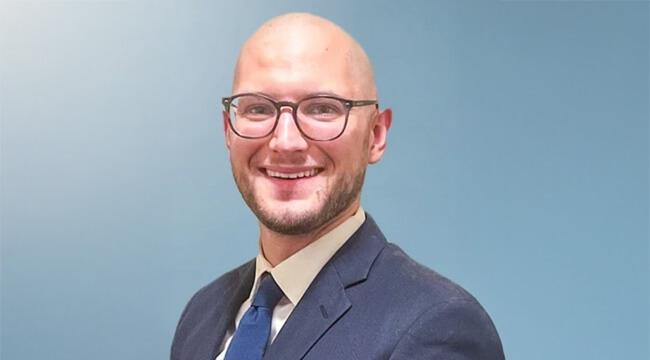Dodge had experiences during and after college that piqued his interest in the legal field: "First, I helped to start a program at the Chittenden Regional Correctional Facility called SPEAK, which uses public speaking and debate as a tool for education and self-empowerment in correctional settings. Second, after I graduated, I was an Americorps*VISTA volunteer at the Vermont Affordable Housing Coalition, where I worked both directly and indirectly with housing insecure individuals. Many of the folks I worked with were recipients of state and/or federal social welfare programs that subsidized the cost of their housing. In that role, my supervisor was a part-time lobbyist at the statehouse, where he advocated for changes to Vermont law that would create a better support system for those facing homelessness. After getting to work with folks in both of these positions who had been directly and indirectly affected by the law in such different ways, I knew that going to law school was an attractive path for me."
When asking him about his use of the Econ degree, he notes that he hasn't used his economics degree in the traditional sense but "it gave [him] an understanding of financial systems, dynamics, and incentives that was fundamental to many of my later jobs." Dodge took classes of interest such as Stephanie Seguino’s class examining inequality in the United States and Prof. Solnick’s class on game theory. Dodge says "I feel that having a degree in economics gave me essential background knowledge that allowed me to be more successful as I pursued becoming a lawyer."
In his concluding remarks he gives advice to current students: "When I was in college, I wish someone had told me that the most important learning that I would do would happen outside the classroom. The days that I spent teaching debate to incarcerated women were some of the most formative in terms of shaping my career path, and I never would have had that experience through any UVM class. (Although that has changed now, and I will give a shameless plug for UVM’s Liberal Arts in Prison program, which now offers credit-bearing classes for UVM students inside the Chittenden Regional Correctional Facility). My advice is to take risks in your extracurricular activities that expose you to new experiences, perspectives, and opportunities. Don’t be afraid to follow your own path. Even if your colleagues are all excited about a certain career direction, you may find that those choices do not suit your personality or strengths. But most importantly, enjoy your years at UVM, which is a special community of talented students who are, by and large, passionate about making meaningful change in their communities. I still count my UVM roommates and classmates among my closest friends, even seven years after leaving."
